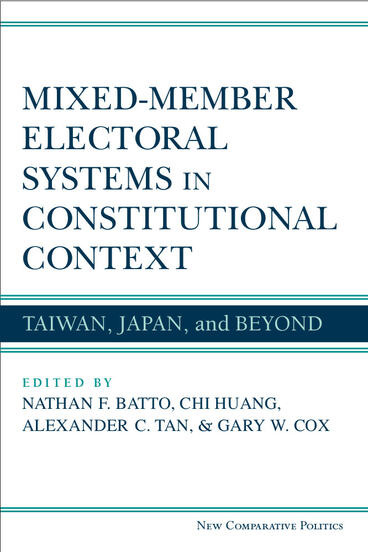Mixed-Member Electoral Systems in Constitutional Context
Taiwan, Japan, and Beyond
An examination of the ways in which the introduction of mixed-member electoral systems affects the configuration of political parties
Description
Reformers have promoted mixed-member electoral systems as the “best of both worlds.” In this volume, internationally recognized political scientists evaluate the ways in which the introduction of a mixed-member electoral system affects the configuration of political parties. The contributors examine several political phenomena, including cabinet post allocation, nominations, preelectoral coalitions, split-ticket voting, and the size of party systems and faction systems. Significantly, they also consider various ways in which the constitutional system—especially whether the head of government is elected directly or indirectly—can modify the incentives created by the electoral system.
The findings presented here demonstrate that the success of electoral reform depends not only on the specification of new electoral rules per se but also on the political context—and especially the constitutional framework—within which such rules are embedded.
Nathan F. Batto is an Assistant Research Fellow at the Institute of Political Science, Academia Sinica, Taiwan, and a jointly appointed Assistant Research Fellow at the Election Study Center, National Chengchi University.
Chi Huang is a University Chair Professor of Political Science and Research Fellow of the Election Study Center at the National Chengchi University, Taiwan.
Alexander C. Tan is Professor of Political Science at the University of Canterbury in Christchurch, New Zealand.
Gary W. Cox is William Bennett Munro Professor of Political Science at Stanford University.
Reviews
“This important volume provides detailed theoretically informed overviews of the (conditioned) impact of a new electoral system on the politics of Japan and Taiwan, with the added bonus of additional material on a number of other mixed-member cases (New Zealand, Philippines, Thailand, Bolivia and Russia prereform).”
—David Farrell, University College Dublin
“This book will be an instant classic on mixed-member electoral systems blending single member districts and proportional representation, arguably the most popular electoral rules of the 21st century.”
—Frances Rosenbluth, Yale University

